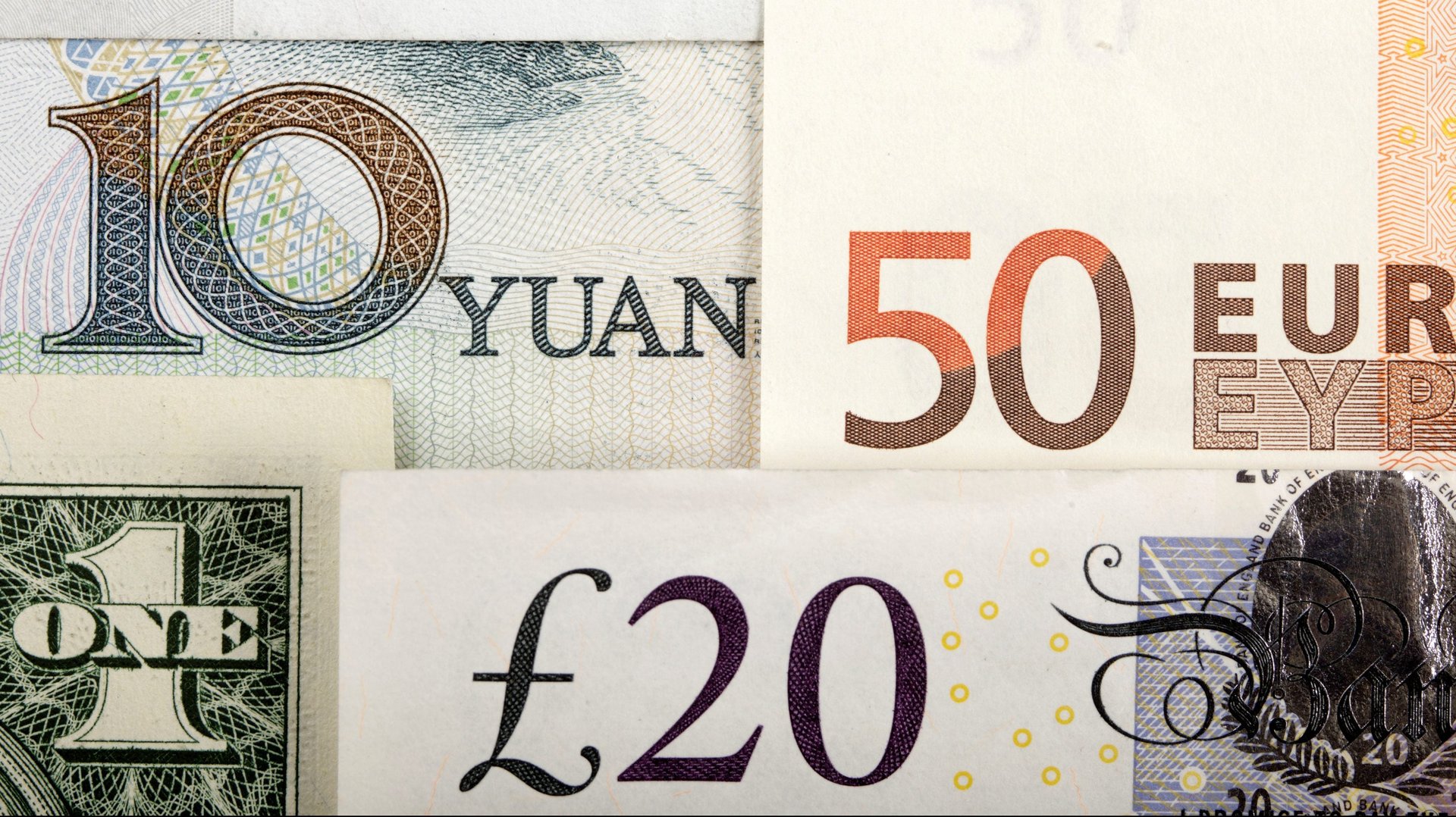The world’s money transfer system is China’s Achilles heel in its sanctions battle against the US
When the US sanctioned 11 Hong Kong and Chinese officials for their roles in curtailing Hong Kongers’ freedoms, Beijing scoffed. One senior official offered to send $100 to the US just so president Donald Trump could freeze it. China quickly reciprocated by sanctioning 11 prominent Americans.


When the US sanctioned 11 Hong Kong and Chinese officials for their roles in curtailing Hong Kongers’ freedoms, Beijing scoffed. One senior official offered to send $100 to the US just so president Donald Trump could freeze it. China quickly reciprocated by sanctioning 11 prominent Americans.
But China is actually far more vulnerable to US sanctions than it will let on, even if the sanctions are aimed at individuals and not banks. That’s because the primary system powering the world’s cross-border financial transactions between banks, Swift, is dominated by the US dollar.
Known in full as the Society for Worldwide Interbank Financial Telecommunication, the Brussels-based Swift cooperative serves as a giant messaging network used by banks and other financial institutions to quickly and securely send information—like money transfer instructions—to each other. The network’s 11,000 members ping each other more than 30 million times a day.
According to the latest data (pdf) from Swift, more than 40% of global transactions on its platforms are denominated in dollars. Since the bulk of dollar transactions are cleared through American banks, the US can argue that those transactions pass through US soil, thereby giving the US legal jurisdiction over them. That means the US has outsize control over the machinery of international transactions—or, as the Economist put it, “America is uniquely well positioned to use financial warfare in the service of foreign policy.”
That’s why banks in Hong Kong are now wary of providing services to the 11 sanctioned Hong Kong and Chinese officials. According to local media reports, several banks have already suspended certain services, including high-speed bank transfers, to the sanctioned officials, and will also have to suspend credit cards issued by US companies like Visa and Mastercard. Meanwhile, Chinese state-owned banks are also taking steps to comply with the US sanctions, with at least one bank refusing to operate accounts for the sanctioned officials, according to Bloomberg.
Carrie Lam, Hong Kong’s chief executive, has brushed off the sanctions and said she has no US assets anyway. But she has acknowledged that the credit card curbs are an “inconvenience,” though nothing compared to the “honor” of having been endowed with the mission of safeguarding China’s national security. The police chief, Chris Tang, said the sanctions were “meaningless” to him, adding that protecting national security was his duty and honor. Tang did, however, move his residential mortgage from London-headquartered HSBC to the Bank of China just three days before the sanctions hit, according to local news outlet HK01. Separately, the police credit union last week moved HK$11 billion ($1.4 billion) in assets from foreign banks to China-based institutions.
Though Swift describes itself as a “neutral utility” with no authority to make or enforce sanctions decisions, even banks without branches in the US will have vested interests in complying with US sanctions, lest they risk losing crucial access to dollar funding. As law firm Allen & Overy explains in a note, “global banks with no US banking license may still be exposed to enforcement actions by US civil and criminal authorities… if there is a sufficient US nexus that may be as minimal as dollar payments cleared through the United States.”
China is under no illusions about vulnerable exposures to the dollar-dominated global payments system. Just last month, the Bank of China published a report urging Chinese banks to switch away from from Swift. “A good punch to the enemy will save yourself from hundreds of punches from your enemies,” the report noted.
To wean itself off of dollar dependence, China launched its own yuan-denominated clearing and settlement system, called the Cross-border Interbank Payment System (CIPS), in 2015. Though CIPS has grown rapidly in the years since, it remains tiny. Only 980 financial institutions have used the service, less than a tenth of the number using Swift. And it processes a mere $19.4 billion a day, compared to up to $6 trillion a day on Swift. Russia, India, and China are looking into building a Swift alternative, but that plan is in its infancy. Meanwhile, Hong Kong, the source of much of China’s foreign direct investment, processes US dollar settlements on Swift (pdf).
“[W]ere China to have its own cross-border clearing system that operated independently of Swift and US banks, then it would be less vulnerable to US sanctions,” said Barry Eichengreen, a professor of economics at University of California, Berkeley, who studies global currencies.
But an internationalized yuan with enough clout to displace the dollar’s dominance doesn’t look likely to materialize anytime soon. Until then, China will be nowhere close to being an equal sparring partner in its sanctions battle against the US.